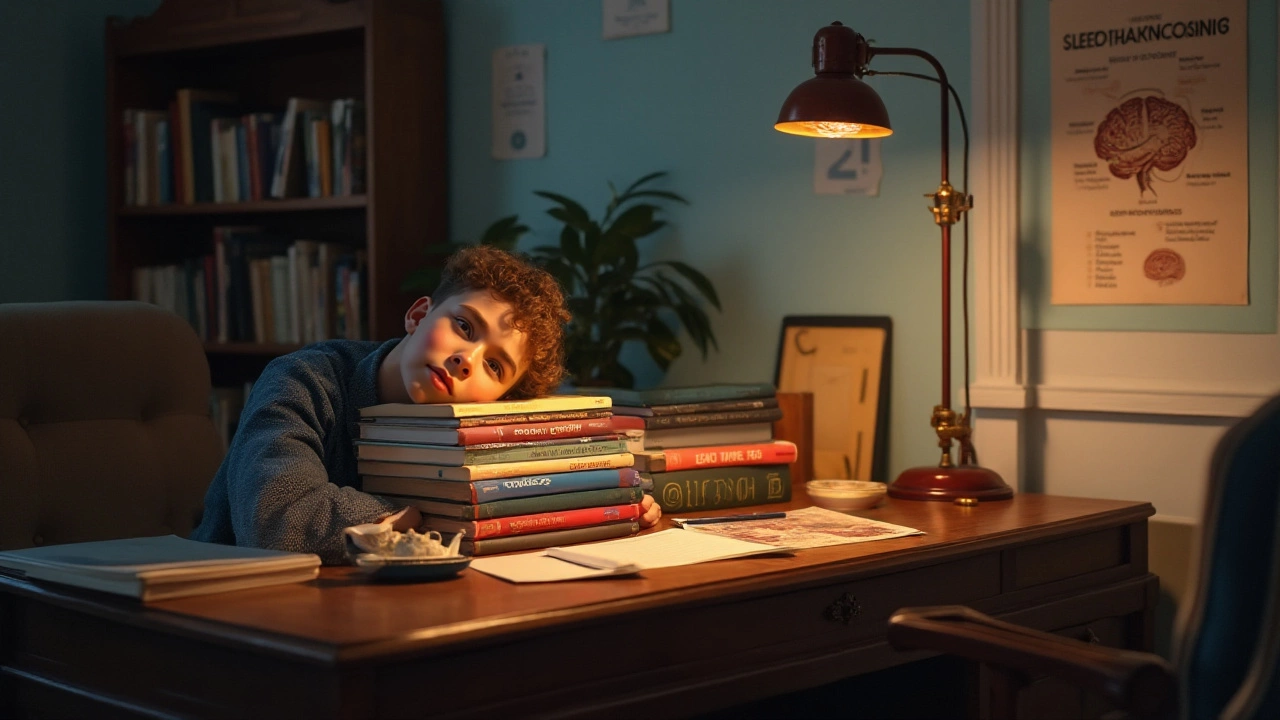Sleep Hacks for Better Learning and Exam Success
Ever wondered why a good night’s sleep feels more powerful than pulling an all‑night study session? Your brain actually rewires itself while you snooze, turning short‑term facts into long‑term memory. That means the extra hour of shut‑eye can be more valuable than an extra hour of notes.
How Much Sleep Do You Really Need?
Teenagers and young adults perform best with 8‑10 hours of quality sleep. Anything less starts to erode attention, reaction time, and the ability to recall information. If you’re consistently getting under 7 hours, expect slower reading speed and more mistakes on practice tests.
A short 20‑30 minute nap can also sharpen focus after a long study block. The key is to keep it brief—longer naps push you into deep sleep, leaving you groggy when you wake up.
Practical Sleep Strategies for Students
1. Set a bedtime alarm. Treat your bedtime like a class you can’t miss. A reminder on your phone helps you wind down before it’s too late.
2. Power down screens 30 minutes before bed. The blue light from phones and laptops tricks your brain into thinking it’s still daylight, delaying melatonin release.
3. Create a calm routine. A quick stretch, a glass of water, or reading a short story signals to your body that it’s time to relax.
4. Keep the room cool and dark. A temperature around 18 °C (65 °F) and blackout curtains improve sleep depth.
5. Limit caffeine after noon. A coffee or energy drink later in the day can keep you wired when you need to be winding down.
6. Schedule study sessions earlier in the day. Your brain’s alertness peaks mid‑morning. Reserve the evening for review, then hit the pillow.
7. Use the “two‑hour rule.” Finish intense studying at least two hours before you plan to sleep. This gives your brain time to consolidate information without the stress of last‑minute cramming.
When you combine these habits, you’ll notice clearer thinking, quicker recall, and less anxiety before exams. It also helps you stay energized for other activities like sports or hobbies, which further boost brain health.
Remember, sleep isn’t a luxury—it’s a study tool. Treat it like any other essential resource, and you’ll see the difference in grades and well‑being.
Sleep or Cram? Decoding Exam Prep Strategies
When exams loom, students often face the dilemma of whether to cram all night or get a good night's sleep. This article explores the impact of both strategies on learning and retention, providing insights and tips for effective exam preparation. Understand the science behind sleep and memory, the downfalls of cramming, and find a balanced approach to ace your exams. Learn to optimize your study sessions with practical advice based on research and everyday experiences.
Is Two Hours of Sleep Better Than None for Studying Success?
When cramming for exams, students often wonder if catching two hours of sleep is better than pulling an all-nighter. This article explores the science behind sleep and its impact on memory and concentration. It provides practical advice for maximizing rest during study periods, backed by research on sleep cycles and brain function. Discover whether a short nap can boost your exam performance or if it's just as good as skipping sleep entirely.

